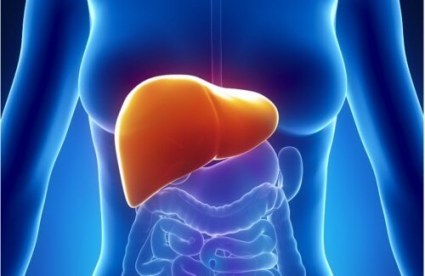Hepatic steatosis: Symptoms, diet, causes and cures
The hepatic steatosis or fatty liver disease, is caused by excess fat accumulated in the liver (more than 5-10% of the weight of the liver cells), constitute a risk to health. Hepatic steatosis or fatty liver is a condition that should be treated and, in any case underestimate. Why it occurs? The causes include a diet too high in calories or too rapid weight loss. The complications can be many, since the inflammation of the liver to cirrhosis that can lead to liver failure. Sometimes, inflammation of the fatty liver is related to alcohol consumption.
Table of Contents
Symptoms
Fatty liver does not always have obvious symptoms. In fact, it is in more advanced stages when appear more clear signs such as fatigue, weight loss, weakness and confusion. Although evidence of fatty liver may appear in a blood test, it is usually necessary to perform other tests, such as ultrasound, CT or MRI and liver biopsy (removes a sample of tissue, which is analyzed under a microscope).
Causes
Among the causes of fatty liver is the following a diet too rich in calories, which prevents the liver from being able to metabolize fats well. The risk factors are obesity, diabetes, and hypertriglyceridemia. The alcohol can also increase the risk of accumulating fat in the liver.
Other causes lie in the too rapid weight loss (due to extreme diets) and problems of nutritional deficiencies. It may also affect stress, hereditary metabolic disorders and even viral diseases such as hepatitis C, and the abuse of certain drugs, such as corticosteroids, tetracycline and aspirin.
Diet
To slow the progression of the disease, it is important to improve lifestyle. It is essential to practice at least 30 minutes of exercise each day and follow a balanced diet to reduce body weight, if overweight.
It would be advisable to eliminate from the diet of refined carbohydrates, found in foods such as cereal, pasta, rice and sweets. Similarly, it would be advisable to increase fiber intake.
An example of proper diet in case of fatty liver would be:
- Breakfast: A slice of bread with 2 tablespoons of peanut butter or peanut cream, half cup of strawberries.
- Mid-morning: Half cup of pears with a handful almonds.
- Lunch: 150 grams grilled salmon, 50 grams soy beans, a piece of fruit.
- Snack: 30 grams low fat cheese.
- Dinner: 150 grams of grilled chicken seasoned with a teaspoon of olive oil, 200 grams cooked vegetables.
Foods to avoid
In addition to avoiding sweets, the carbohydrates and sugars, should limit consumption of saturated fats, because these are more difficult to metabolize by the liver. If we maintain a diet rich in fat not only we will be more difficult to take care of the weight but we run the risk that our state of health deteriorates. It is also important to avoid fried foods, baked goods and not to eat too many dairy products. Same advice for red meat, pork and lamb. There are other foods that should be monitored, and are those that have a high glycemic index, and therefore increase the level of blood sugar (potatoes, bananas, white bread, and corn, chocolate). And above all, avoid alcohol, since it causes the accumulation of fat in the liver.
Remedies
Natural remedies can be very useful, especially when the disorder is mild. Remedies such as artichoke, dandelion and milk thistle. The artichoke is rich in cynarin, which aids digestion and helps eliminate fat through stimulation of hepatic functions. It can be taken in the form of infusions prepared from the dried and chopped leaves to reduce the proportion of cholesterol in the blood.
Dandelion, for its part, is rich in active ingredients, such as linoleic acid and taraxinico acid, which may have effects on the digestive system. It is especially diuretic and detoxifying. Milk thistle has a stimulating effect, protects the liver, it stimulates the production of new liver cells and protects against free radicals. It is also advisable to take tea between meals
Care
There are specific therapies for fatty liver. The treatment of fatty liver is based on a healthy diet and a regular practice of physical activity. Usually, the doctors tend to avoid drug therapy, unless there is an inflammation in the process. In addition to avoiding the alcohol abuse, it is very important to take care of diet to reduce metabolic syndrome and overweight.
